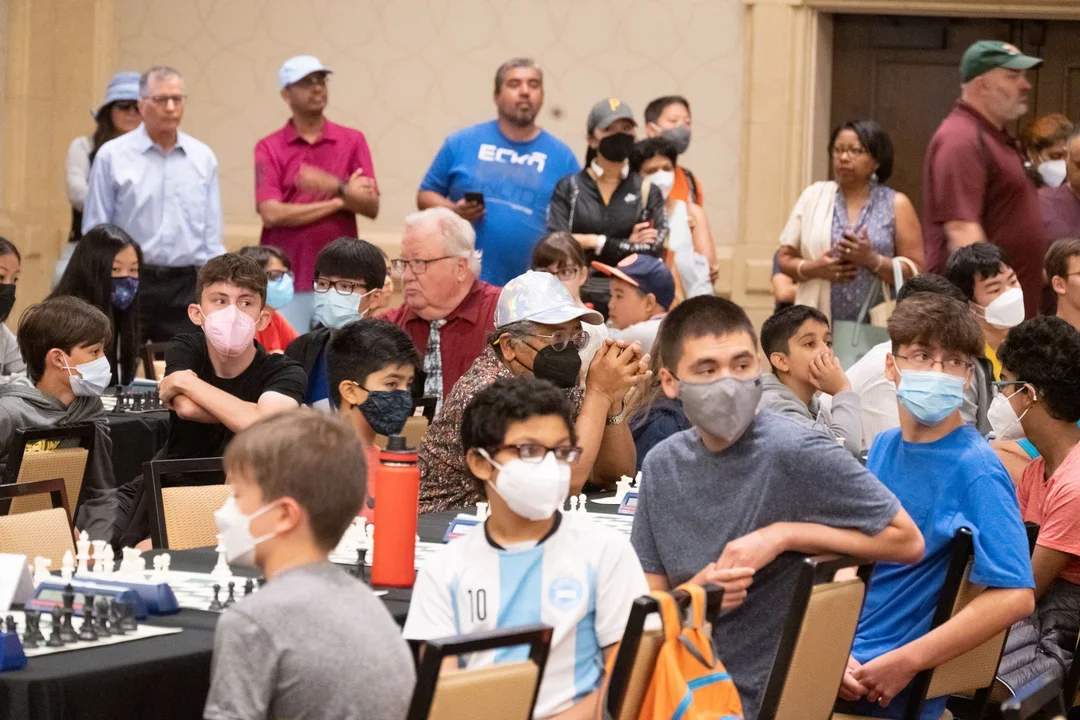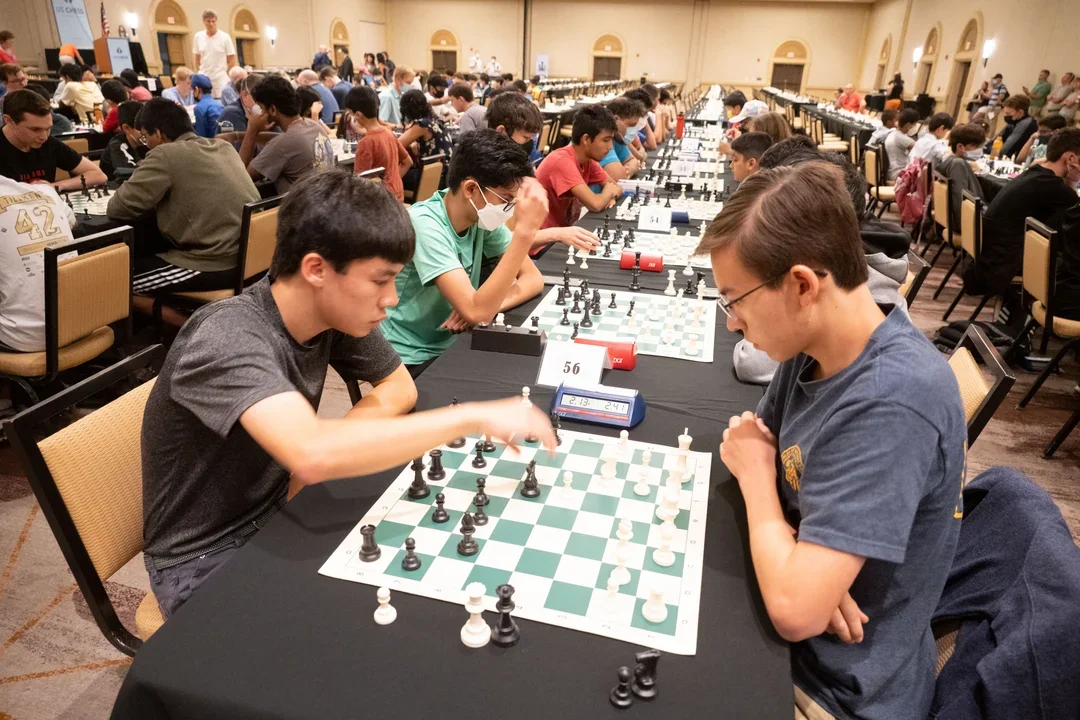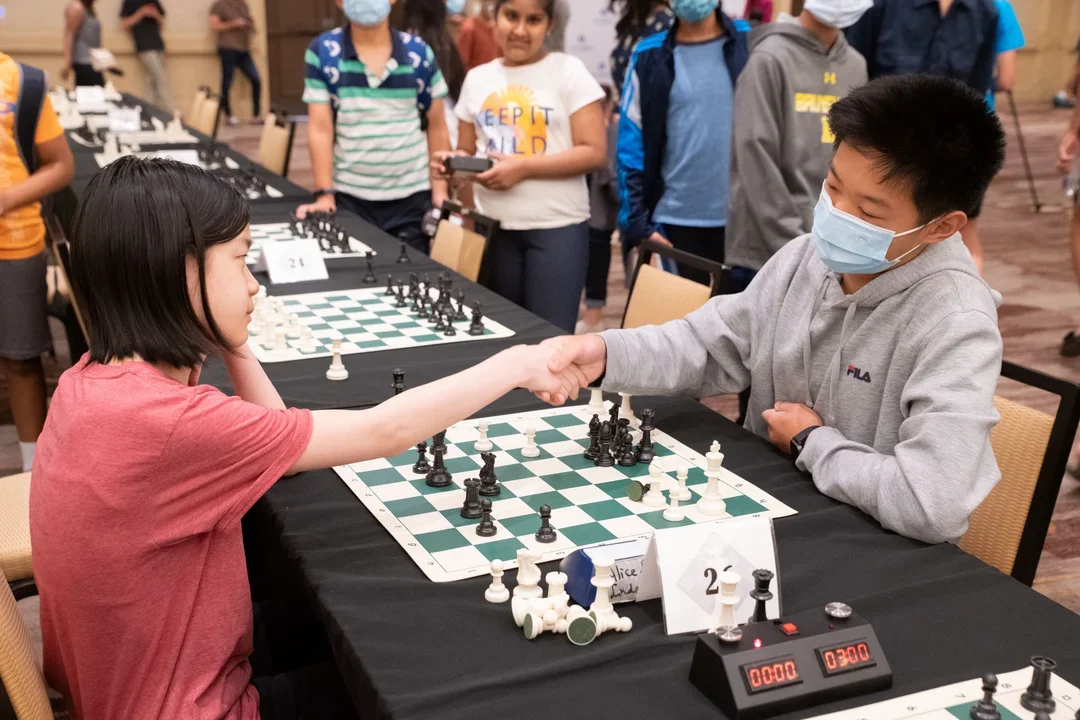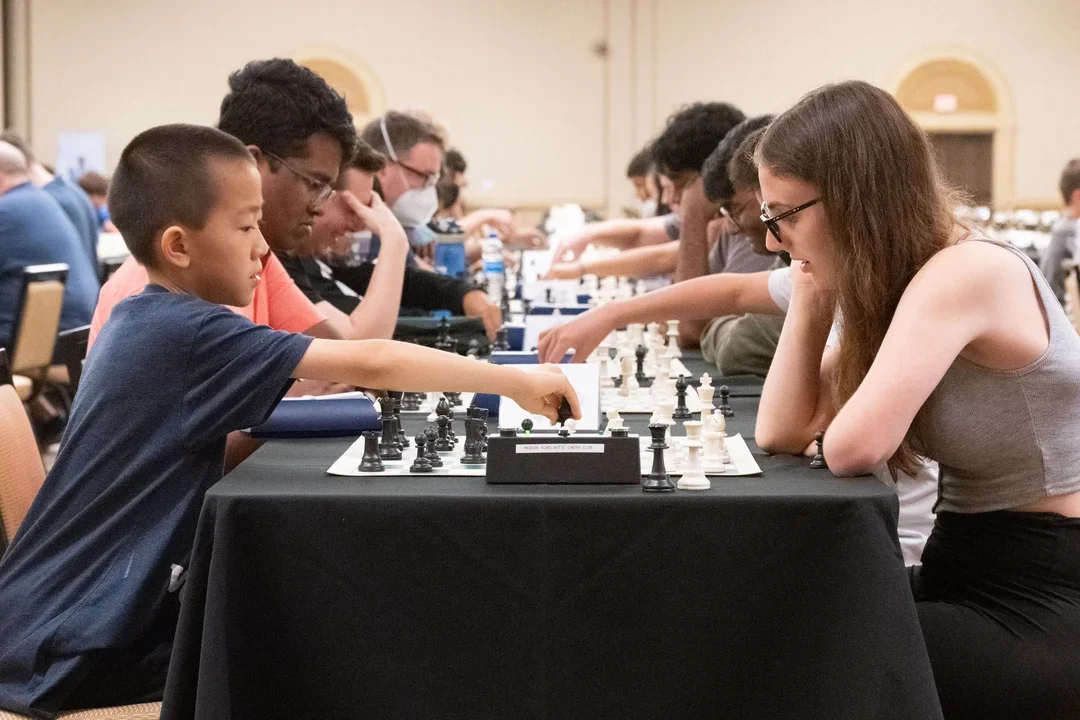
The 123rd Annual U.S. Open will take place in Grand Rapids, MI, from July 29 through August 6 at the DeVos Place Convention Center. Here is a primer of what to expect and how to follow all the action!
A True Open
As always, the “main event” will be the nine-round tournament that is unique in major American events for being a “true open.” While other tournaments feature top sections that are “open” to any player who chooses to forgo playing in their rating class (and, sometimes, pays an additional “play-up fee”), the U.S. Open is run as one gigantic section. Class players can earn prizes for finishing with the best score in their rating class, but they might have to play down, up, or “way up,” in order to get there.
At the time of writing, 322 players are registered, including GM Semen Khanin (a regular at the top of American opens) and GM Andrew Tang (a regular at the top of online bullet chess tournaments). As an extra motivator, the top American finisher also earns a qualifying spot in the 2023 U.S. Championship.
Last year’s winner was Russian GM Alexey Sorokin, who defeated GM Elshan Moradiabadi in an Armageddon game, although the latter still took the qualifying spot for the U.S. Championship as the top American finisher. Neither Sorokin nor Moradiabadi are currently registered for this year’s event.
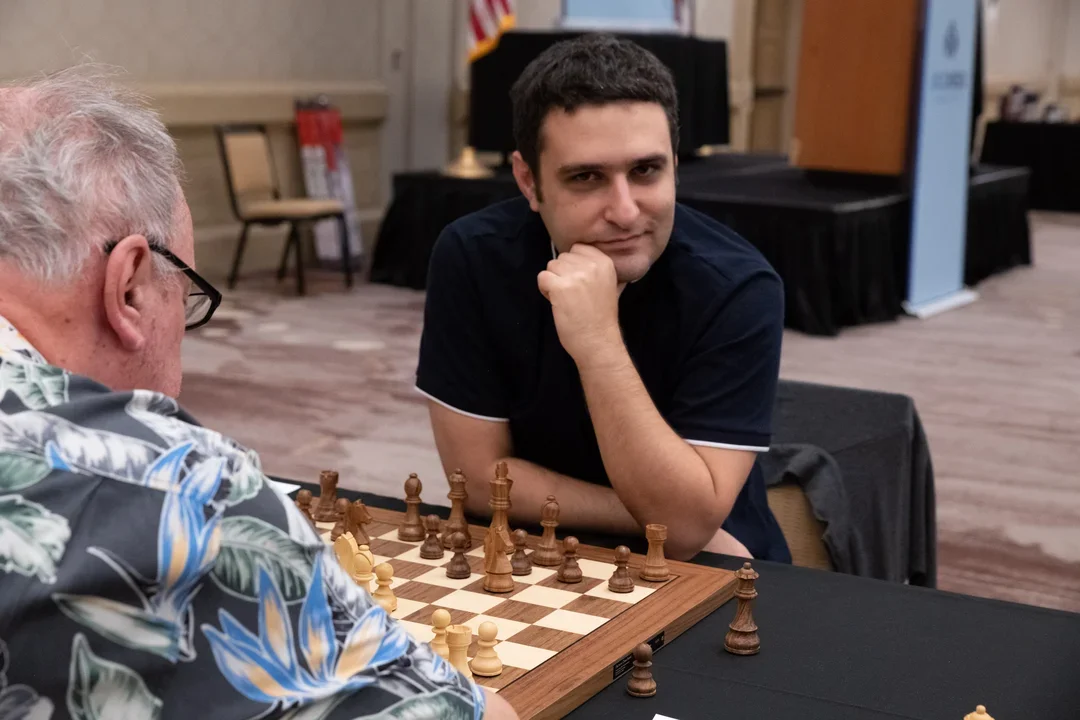
One added wrinkle is that, while there is only one section, there are three separate playing schedules. The “traditional” schedule allows for a “European” approach to the event, with only one round of classical chess played per day over nine days. The six-day caters to players who might have plans that first weekend (more on that below), while the four-day is perfect for speedy players who don’t mind getting some of their games in at a much faster time control (guess which section Tang is signed up for).
Because of this, keep an eye out for round five and, especially, round seven, when the sections “merge” and top players have the opportunity to square off.
All rounds can be followed on USChess.live. Rounds seven through nine (August 4 through 6) will be broadcast live on US Chess’s Twitch channel, with coverage from five-time Olympiad representative WGM Sabina Foisor and former U.S. Junior champion GM Kayden Troff. Coverage will begin for rounds seven and eight at 7:00 p.m. EDT, and at 3:00 p.m. EDT for round nine.
The Champion(s) of Champions
The first four days of the U.S. Open are, funnily enough, primarily about a number of “closed” championships. Representatives from each state have the opportunity to fight for the title of “champion of champions” in five separate invitationals.
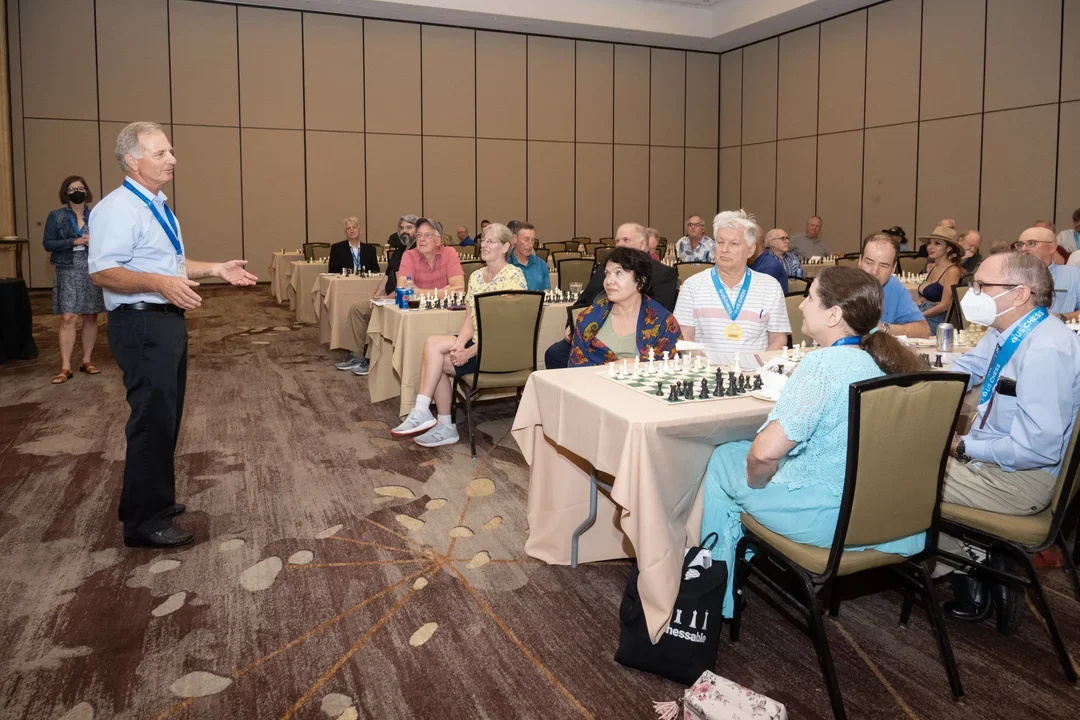
The 6th Annual John T. Irwin National Tournament of Senior State Champions will feature 47 players from 46 states (California sends one representative from the northern part of the state and one from the southern part), including defending co-champion GM Enrico Sevillano (CA-S).
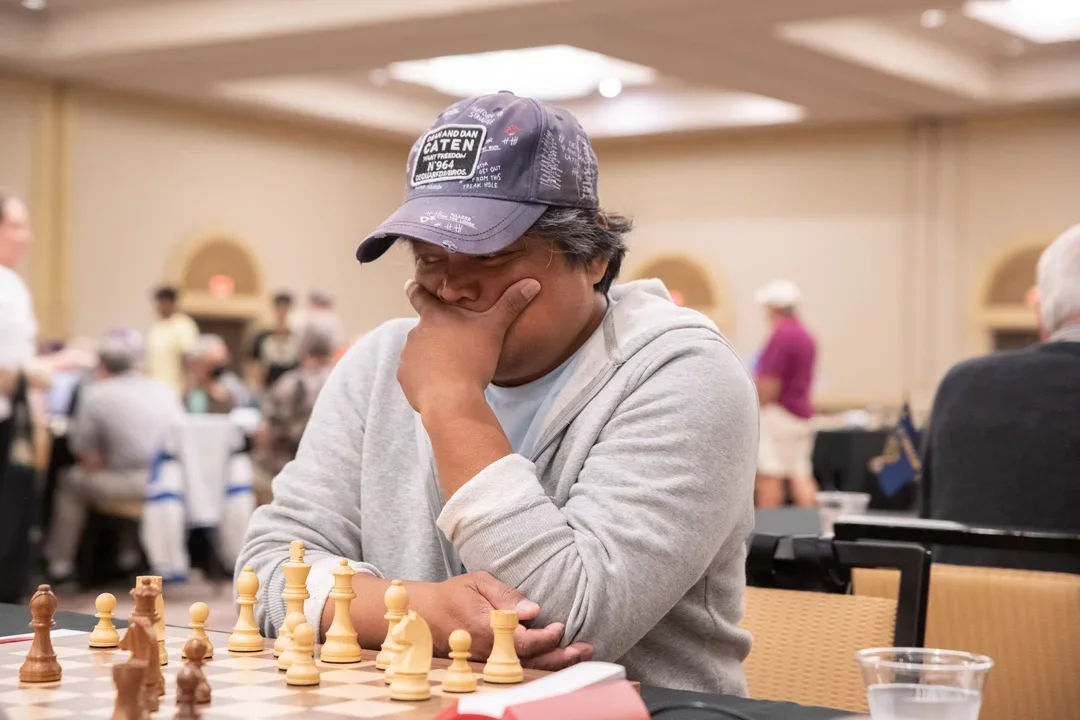
The 39th Annual GM Arnold Denker National Tournament of High School State Champions will boast representatives from every state except Alaska and South Dakota. Defending co-champion IM Arthur Guo (GA) will be back, this time as a rising high school senior. Co-champion and regular Chess Life Online correspondent IM Sandeep Sethuraman will not be playing, but he will be covering several rounds of the event for CLO.
The 11th Annual WIM Ruth Haring National Tournament of Girls State Champions features 43 players, including defending champion FM Ruiyang Yan (CA-N), who is also coming off a strong second-place finish in the 2023 U.S. Girls’ Junior Championship. Interestingly, while last year’s Haring was a reunion for players in the 2022 U.S. Girls’ Junior championship, this year Yan is the only invitee to both events.
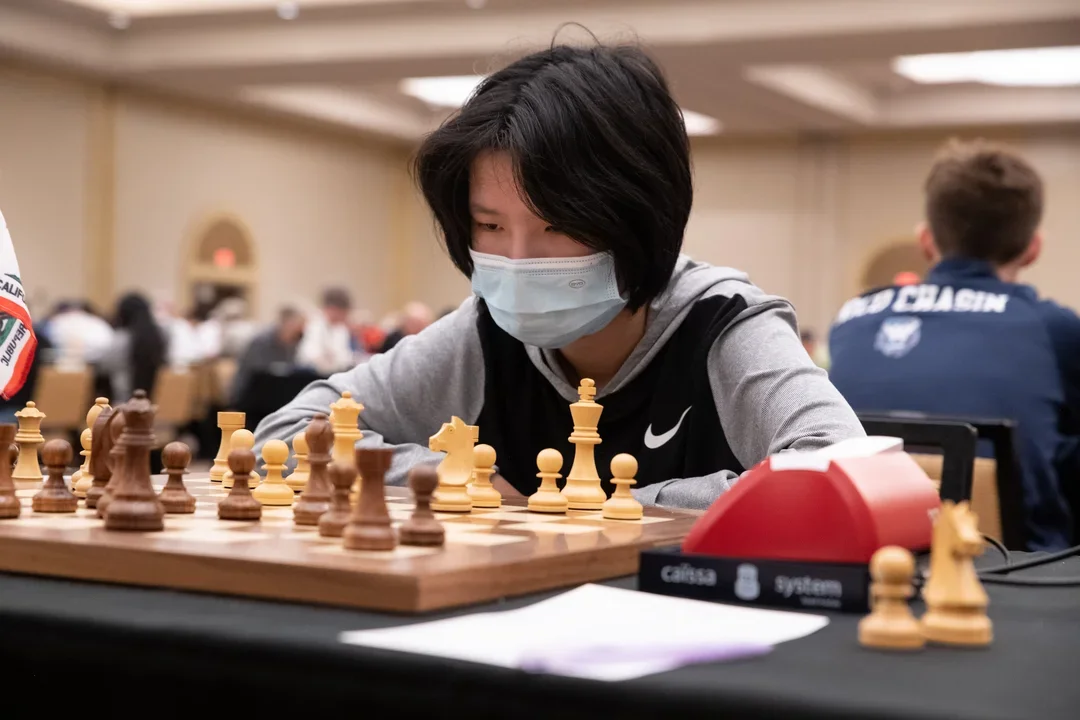
The 13th Annual Dewain Barber National Tournament of Middle School State Champions will have 47 states represented, and will be the only invitational with a representative from Alaska (Elijah Pancoast). FM Brewington Hardaway from New York has been on a tear recently, earning his final IM norm earlier this month, and looks to defend his title one last time before going off to high school.
Finally, the 4th Annual John D. Rockefeller III National Tournament of Elementary School State Champions will feature exactly 50 participants. This is the only event without any defending champions competing, so we are guaranteed at least one new “champion of champion,” although I predict we will see several more.
While the games won’t be broadcast online, perhaps the most entertaining part of the invitationals is the 4th Annual FM Sunil Weeramantry National Blitz Tournament of State Champions. This is the only event that is split into sections by rating, rather than age/grade, allowing for some entertaining inter-generational clashes.
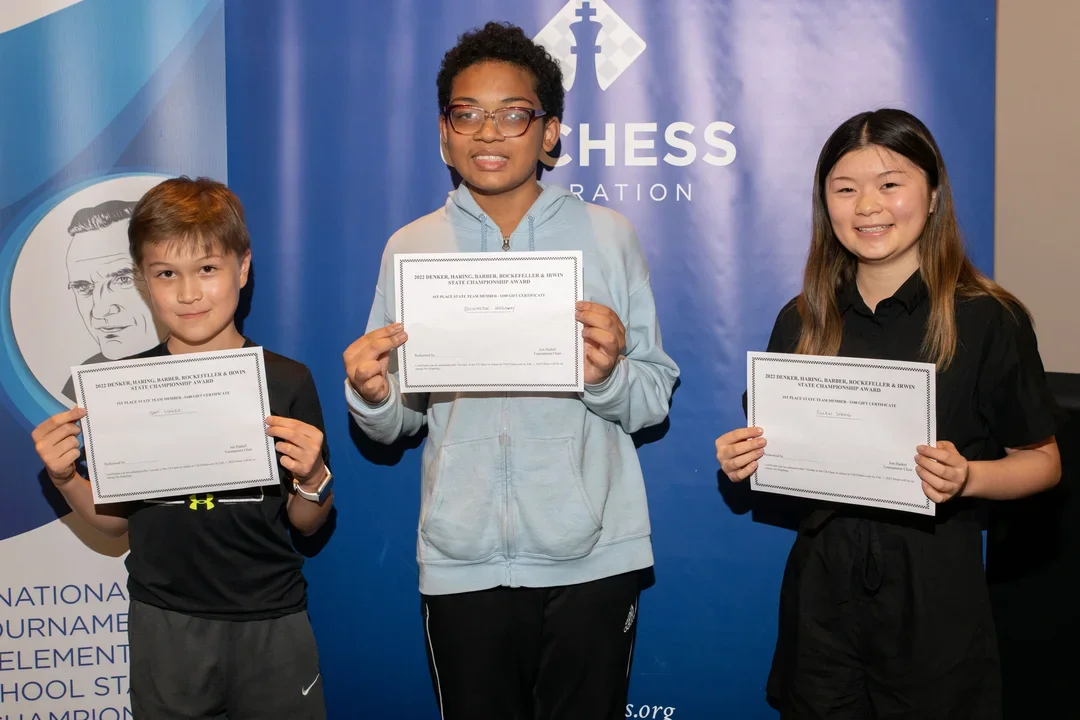
An additional category of competition is the State versus State Championship, which combines all the scores of representatives from a given state to determine which state produced the best overall performance. This category also offers additional prizes for the top state whose participants’ ratings average under 2100, 1900, or 1600.
All information about eligibility, funding, and the prizes for the various invitationals is available on this year’s program.
All six rounds of the invitationals will be broadcast on US Chess’s Twitch channel, with coverage from five-time Olympiad representative WGM Sabina Foisor and former U.S. Junior champion GM Kayden Troff. Round one begins Saturday, July 29, at 7:00 p.m. EDT. Rounds two and three will be played Sunday, July 29, at 12:00 p.m. EDT and 7:00 p.m. EDT, respectively. Rounds four and five are at the same times on Monday, July 31, and round six will be Tuesday, August 1, at 10:00 a.m. EDT.
In case it’s not clear, this means that all participants in the invitationals will be free to join the U.S. Open for the six-day schedule, and many of them do just that!
Quick Chess, Served with a Side of Blitz
There are side events every day except August 6 this year, with a number of options ranging from Bughouse to blitz and a multi-day Swiss tournament. Information about all of these events described below can also be found here.
Players who only want to play a “weekender” can fit five rounds of game-in-60-minutes chess with a five-second delay in on Saturday, July 29 and Sunday July 30. There will also be one-day quads, with sections based on rating, every day from Monday, July 31, through Friday August 4. The Tuesday quads will be special, with a slower time control, but every other day features the “action” time control of game-in-30-minutes with the same five-second delay.
For those who prefer faster time controls —or, at least, don’t want to have their standard rating risk taking a hit —the U.S. National G/15 Championship will take place on Wednesday, August 2 beginning at noon. If that’s still too slow for your liking, the U.S. Open National Blitz Championship, played without any delay or increment, will allow participants to enjoy 14 games of five-minute chess on Saturday, August 5.
The U.S. Open Scholastic will be held on Sunday, July 30, and is open to all US Chess members (including new members) in grade 12 or below.
And, before that, don’t forget about Bughouse, which begins on Saturday, July 29 at 10:30 a.m.
Meet, Mingle, Delegate
A number of workshops and meetings will take place from August 2 to 4. The Annual Delegates Meeting will follow on August 5 and 6. The time and place for the awards ceremony for the 2023 US Chess Awards Recipients is will be held at 4 p.m. on Friday, August 4, in AG-Ford.
Quick Links:
Social media tags:
Categories
Archives
- January 2026 (6)
- December 2025 (27)
- November 2025 (29)
- October 2025 (39)
- September 2025 (27)
- August 2025 (29)
- July 2025 (43)
- June 2025 (25)
- May 2025 (24)
- April 2025 (29)
- March 2025 (29)
- February 2025 (20)
- January 2025 (24)
- December 2024 (34)
- November 2024 (18)
- October 2024 (35)
- September 2024 (23)
- August 2024 (27)
- July 2024 (44)
- June 2024 (27)
- May 2024 (31)
- April 2024 (51)
- March 2024 (34)
- February 2024 (25)
- January 2024 (26)
- December 2023 (29)
- November 2023 (26)
- October 2023 (37)
- September 2023 (27)
- August 2023 (37)
- July 2023 (47)
- June 2023 (33)
- May 2023 (37)
- April 2023 (45)
- March 2023 (37)
- February 2023 (28)
- January 2023 (31)
- December 2022 (23)
- November 2022 (32)
- October 2022 (31)
- September 2022 (19)
- August 2022 (39)
- July 2022 (32)
- June 2022 (35)
- May 2022 (21)
- April 2022 (31)
- March 2022 (33)
- February 2022 (21)
- January 2022 (27)
- December 2021 (36)
- November 2021 (34)
- October 2021 (25)
- September 2021 (25)
- August 2021 (41)
- July 2021 (36)
- June 2021 (29)
- May 2021 (29)
- April 2021 (31)
- March 2021 (33)
- February 2021 (28)
- January 2021 (29)
- December 2020 (38)
- November 2020 (40)
- October 2020 (41)
- September 2020 (35)
- August 2020 (38)
- July 2020 (36)
- June 2020 (46)
- May 2020 (42)
- April 2020 (37)
- March 2020 (60)
- February 2020 (38)
- January 2020 (45)
- December 2019 (34)
- November 2019 (35)
- October 2019 (42)
- September 2019 (45)
- August 2019 (56)
- July 2019 (44)
- June 2019 (35)
- May 2019 (40)
- April 2019 (48)
- March 2019 (61)
- February 2019 (39)
- January 2019 (30)
- December 2018 (29)
- November 2018 (51)
- October 2018 (45)
- September 2018 (29)
- August 2018 (49)
- July 2018 (35)
- June 2018 (31)
- May 2018 (39)
- April 2018 (31)
- March 2018 (26)
- February 2018 (33)
- January 2018 (30)
- December 2017 (26)
- November 2017 (24)
- October 2017 (30)
- September 2017 (30)
- August 2017 (31)
- July 2017 (28)
- June 2017 (32)
- May 2017 (26)
- April 2017 (37)
- March 2017 (28)
- February 2017 (30)
- January 2017 (27)
- December 2016 (29)
- November 2016 (24)
- October 2016 (32)
- September 2016 (31)
- August 2016 (27)
- July 2016 (24)
- June 2016 (26)
- May 2016 (19)
- April 2016 (30)
- March 2016 (36)
- February 2016 (28)
- January 2016 (32)
- December 2015 (26)
- November 2015 (23)
- October 2015 (16)
- September 2015 (28)
- August 2015 (28)
- July 2015 (6)
- June 2015 (1)
- May 2015 (2)
- April 2015 (1)
- February 2015 (3)
- January 2015 (1)
- December 2014 (1)
- July 2010 (1)
- October 1991 (1)
- August 1989 (1)
- January 1988 (1)
- December 1983 (1)


